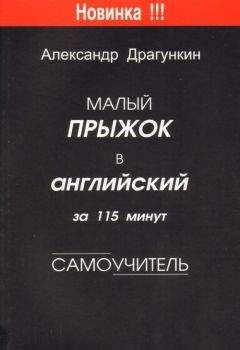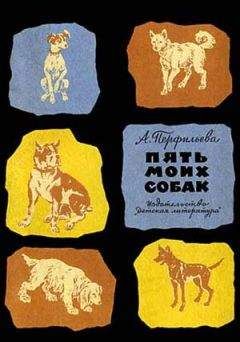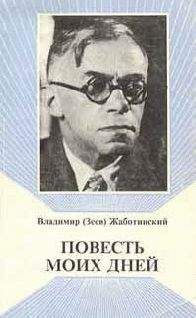Дмитрий Быков - Девочка со спичками дает прикурить
2. Как вы думаете, отличается ли элита в других городах от этой? Объясните свой ответ.
3. Как вы думаете, почему девочка со спичками не стала изменять что-либо в жизни людей, принадлежащих к элите города?
4. Что бы сделали вы с элитой города, если бы оказались на месте девочки?
5. Выразите своё отношение к тому, что девочка решила использовать против элиты города чёрную спичку.
6. Как вы понимаете значение выражения «дать прикурить» по отношению к тем, для кого девочка чиркнула: а) спичками разных цветов; б) чёрной спичкой?
7. А вы бы хотели встретить такую девочку в Рождество? Чем, по вашему мнению, она могла бы помочь вам?
8. Скажите, вы умеете смотреть по сторонам? Объясните ваш ответ.
Дополнительные задания
1. У каждого цвета много значений. Мы выбрали одно из них. Предлагаем вам соединить цвет и это значение.
2. Заполните таблицу, используя «Материал для справок».
Материал для справок:
1) оранжевый
2) бояться жить в чужом городе
3) вернуть любовь
4) иметь серьёзные проблемы со здоровьем
5) иметь всё
6) ничего не иметь
7) перестать бояться скинхедов
8) ревность
9) вылечить насморк
10) вернуть силы и здоровье
11) получить место для ребёнка в детском саду
12) зелёный
13) чёрный
14) нет работы
15) получить новое рабочее место
16) быть всегда с насморком
17) работать с детьми и научить их важным и полезным вещам
18) розовый
19) надо сидеть дома с ребёнком
20) стать руководителем района и сделать его лучшим в области.
3. Заполните таблицу, используя «Материал для справок».
Материал для справок:
1) быть бандитом, а потом стать благотворителем
2) бороться против мигрантов
3) оштрафовать за то, что демонстративно курит на улице
4) смотреть за центральной улицей, на которой бывают представители власти
5) отвезти в детприёмник и побрить
6) взять на демонстрацию к американскому посольству, чтобы выступать там
7) сделать скандальную программу о девочке и крупном руководителе города
8) показать девочку и представителей власти международным детским организациям
9) не демонстративно содержать притон
10) дать золотую карточку казино и каши на завтрак
11) быть против официальной власти
12) надеть наручники, отвезти в милицию и всё узнать о её грязных делах
13) участвовать в движении молодёжи
14) отвечать за борьбу с детьми, которые живут на улице
15) делать скандальные программы, которые жители города смотрят по телевизору
16) не разрешать находиться в городе
4. Переведите на русский язык. Translate into Russian.
Section 1
1. This is not a horror story like the ones Andersen loved to tell.
2. Such things might happen to you even in your city.
3. Our heroine, you understand, does not suffer from the cold.
4. She asks no one for money. Unusual behavior (поведение)!
5. She treats everyone with great sympathy. Remarkable!
6. It seems that she herself does not need help.
7. She just worries about all the others. Commendable (Похвально)!
8. If you have a serious problem at Christmastime you will probably meet our little heroine (героиня) in any city.
9. Just look all around for a beautiful little girl with blue eyes and golden hair standing at a main intersection.
Section 2
1. Suddenly we see a suffering young man whose girlfriend has been offended by his jealousy (ревность) and wants to leave him for someone else.
2. Our little heroine offers him the matchbox to have a smoke.
3. She advises him not to choose a black match. As a result (В результате) he chooses a pink one.
4. Now the young man has lit up, and his head begins to spin. What has happened to him?
5. Suddenly his phone rings. It is she! He is forgiven (Он прощён)! We hear tender words of love, and our young friend rushes off to his beloved! Wonderful (Чудно)!
6. Now we see a patient who is even worse off (в более тяжёлом состоянии), and the match box again appears in the hands of our little heroine.
7. Here is a man about 40 who is out of work. He is very capable and has changed jobs many times.
8. He has been thrown out onto the street without work and without money because he has not kept up with the times (не работал по-современному).
9. The poor man thinks that no one needs him, and everyone is trying to get rid of him (развести его). How awful!
10. Our little girl did not allow (позволить) him choose a black match. She took it away and used a green one instead!
11. As soon as he began to smoke his head began to spin, and he caught sight of an advertisement for a wonderful job as an experienced driver.
12. A business card appeared in his hand, and he rushed off to get set up in the new job.
13. Our heroine only gave a wry smile, but she does not smile for long. Here comes (Вот едет) a woman in a wheelchair.
14. The poor invalid considers herself extremely unfortunate, and in order to forget about her illness is ready to start drinking or smoking.
15. Beautiful long women’s cigarettes suddenly appeared in the hands of our little heroine. Under these circumstances (обстоятельство) it’s probably alright to smoke once a year!
16. Of course, an invalid will always choose a black match, but when this happened our little girl reacted (среагировать) with indignation and picked out a green one for her.
17. Suddenly the wheel chair disappeared, and the woman fell right onto the ground (прямо на землю). But was she satisfied with her new freedom? No!
18. Our heroine also helped many others, such as (такие, как) the teacher who wept because he had nothing and the oligarch who was dissatisfied even though (несмотря на то, что) he had everything.
Section 3
1. A rude bureaucrat shouted at our beautiful little girl. He wanted to know where her parents were.
2. She told him that he better hurry (чтобы он поспешил) or he would be late to his meeting. How did she know that?
3. This bureaucrat, it turned out, was responsible for the city’s homeless children.
4. Conditions for homeless children in the city were horrible! They were better off (Им было лучше) on the street.
5. The bureaucrat threatened (пригрозить) to take our little darling (наша дорогая малышка) to the place for homeless children and shave her lice-covered head.
6. Good work (Молодец)! Take her away to an orphanage (детский дом)!
7. Whose voice is that? It is Mr. Kosyx, a famous television reporter (телерепортёр) who loves scandals.
8. “We’ll prepare a special report, a big (крупный) bureaucrat against a little girl! Good!”
9. A vigilant (бдительный) policeman (милиционер) now appears on the scene. After all, he must maintain order (поддерживать порядок) downtown (центр) where many “important” people regularly walk around.
10. What? A little girl disturbing (нарушать) societal order? Use the handcuffs! Detain the little extremist!
11. “No, never! Answers someone who was passing by (прохожий). “Now even children come out in protest and become victims of the regime! Shame (позор)!”
12. “You’re not local!” shouts another. “Where’s your residence permit (прописка)? Because of people like you we’re dying from hunger! Get out of here (убираться отсюда)!
13. “Fine her for smoking in public (в общественном месте)!” screamed a deputy in the local legislature (although he himself maintained a den (содержать притон) for “business.”)
14. “No!” objects the new city philanthropist, a former bandit who now runs the local casino. “I’ll give her breakfast!”
15. “Leave her alone (Не подходите к ней)!” screams a young leader in the local youth movement. She will be useful to us when we go to picket the American Embassy.
16. Our little girl just gave them all a disgusted look and said with an angelic smile, “You can all go to hell!”
17. After all, was she needed for herself alone and not just for her mission in life?
18. She struck a black match.
19. At that moment everything around her vanished…the city elite also! No one even had the time to shout.
20. She had found a more simple way to solve all of their problems!
Section 4
1. “Well, enough of that! (Достаточно)!” said our little heroine with the matches.
2. She removes her little white fur coat.
3. Now we see two white wings shining in the sun.
4. She flaps (взмахивать) her wings, and our little heroine slowly rises up above the cold lonely (одинокий) city.
5. She is still holding her match box tightly.
6. Perhaps this is a pessimistic story, because, after all, the matches have flown away but the problems remain.
7. Keep in mind (Имей в виду) that Christmas does come once every year.
8. You will still have many chances to meet an angel. You just have to look around carefully!
Ключи
Словарь (Dictionary)
А
а́нгел – в религии: посланец (от гл. «посылать/послать») Бога – angel
А́ндерсен, Ганс Христиа́н – (1805–1875 гг.) датский писатель, автор сказок – Hans Christian Andersen (1805–1875), Danish author and poet, most famous for his fairy tales.
Ах ты, нацбо́лка! – «нацболка» (ж.р.) от «нацбол» – член партии национал-большевиков – member of the National Bolshevik Party
Б
банди́т – тот, кто живёт не по законам общества – bandit
благотвори́тель – тот, кто оказывает помощь кому-либо (деньгами, вещами и т. д.); («благотворитель» = «благо» + «творить») – philanthropist
брезгли́во – нареч. от прил. «брезгливый» – относится к кому-/чему-либо как к чему-то очень грязному, низкому, неприятному – disgusted, fed up
В
возмуще́ние – сильное недовольство, гнев – indignation, outrage
вы́бор – сущ. от гл. «выбирать/выбрать» кого, что – choice
вы́бросить (СВ) на улицу – (идиом.) зд.: оставить (СВ) без работы – to fire someone; to deprive of the means of making a living
Г
гастарба́йтер – иностранный рабочий из какой-либо небогатой страны – foreign worker
гастарба́йтерша – (прост.) женщина-гастарбайтер – female foreign worker
Д
Да иди́те вы все на́ фиг! – (груб. прост.) – зд.: требование оставить в покое – You can all go to hell!
дать прикури́ть (СВ) кому – (идиом.; прост..) отругать (гл. СВ от гл. «ругать») – to get a good telling-off; to get into hot water, to get it in the neck
демонстрати́вно – открыто – doing something in a pointed or emphatic manner
депута́т ме́стного законода́тельного собра́ния – тот, кто участвует в принятии законов; (прил. «местный» от сущ. «место»; «законодательный» = «закон» + «дать»; сущ. «принятие» от гл. «принимать/принять» что) – deputy of the local legislature
детприёмник – место, куда привозят детей, которые живут на улице, для того, чтобы они там могли жить, есть, спать, учиться; («детприёмник» = «дети» + «приёмник»; сущ. «приёмник» от гл. «принимать/принять» кого, куда) – place where homeless children are received, processed, and sent out to various orphanages




